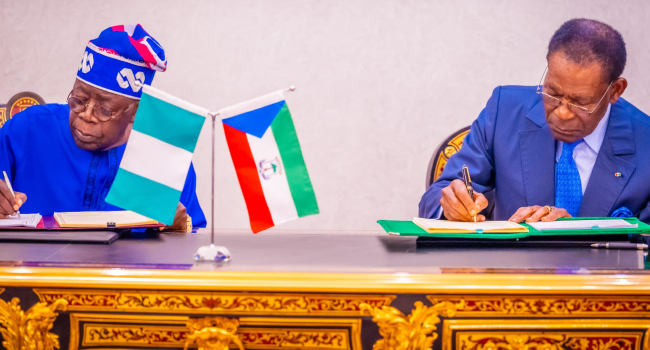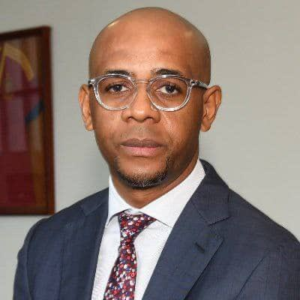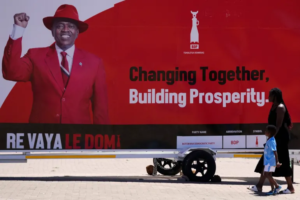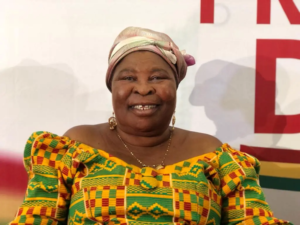
Nigeria and Equatorial Guinea have taken a significant step towards enhancing regional energy cooperation by signing a landmark agreement to develop a gas pipeline across the Gulf of Guinea. The deal was finalized on Wednesday, August 14, 2024, during President Bola Tinubu’s official visit to Malabo, where he met with Equatorial Guinea’s President Teodoro Obiang Nguema Mbasogo.
The agreement, as announced by Nigeria’s presidential spokesperson, Ajuri Ngelale, outlines key components necessary for the pipeline’s development, including regulatory frameworks, ownership structures, and operational guidelines. The pipeline project is poised to boost natural gas exploration and distribution in the region, creating new job opportunities and fostering economic growth.
During the signing ceremony, President Tinubu expressed optimism that the pipeline would not only enhance energy security but also strengthen the economic ties between the two nations. He emphasized the broader significance of the agreement, noting that it represents a commitment to addressing Africa’s challenges through internal cooperation.
“Concerning Africa, conflicts and conflict resolution were discussed. We discussed various areas of conflicts and what we can do to promote peace,” Tinubu said.
“We talked about promotion of peace and stability in our countries, and growth and prosperity on our continent.
“In the same way that Europe and America have kept themselves and found a solution for their conflicts, we have to look at both inadequate capital, industrialisation efforts, research and development programmes, and enlighten our people, navigate our way through problems.
“Instead of the crisis and conflicts that we see in the Republic of Congo and others, we have to look inwards to solve problems ourselves.”
President Mbasogo praised the deepening relationship between Nigeria and Equatorial Guinea, underscoring the strategic importance of the gas pipeline for Africa’s development. He reiterated the need for African countries to collaborate more closely, particularly in securing a permanent seat on the United Nations Security Council, a goal both nations share.
The agreement was signed by Nigeria’s Foreign Minister, Yusuf Tuggar, and Equatorial Guinea’s Foreign Minister, Simeon Oyono Esono, with other high-ranking officials from both countries in attendance. This project is expected to be a major milestone in Africa’s quest for energy independence and economic integration, paving the way for future collaborations across the continent.






Be First to Comment